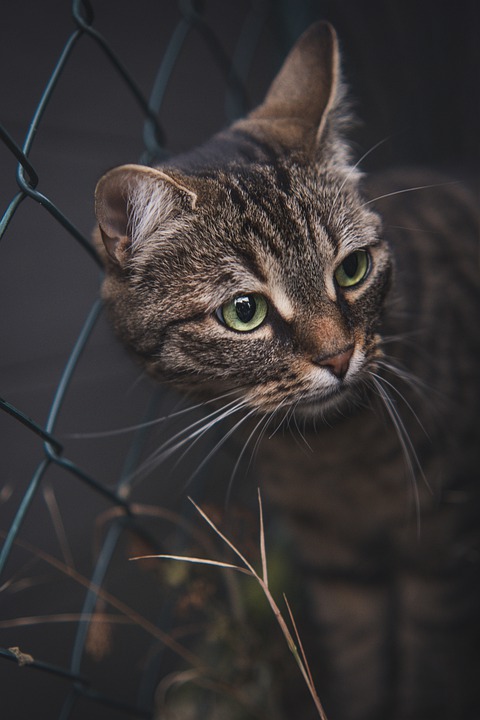Cats are notorious for their sensitive stomachs, making them prone to various gastrointestinal disorders. As a responsible cat owner, it is crucial to understand how to prevent and manage these conditions. In this article, we will explore effective strategies and provide valuable tips for maintaining your feline friend’s digestive health. Additionally, we have included a frequently asked questions (FAQs) section to address common concerns.
I. Understanding Common Gastrointestinal Disorders in Cats
Gastrointestinal disorders in cats can manifest in various ways. It is important to be aware of the following common conditions:
A. Gastritis: Gastritis refers to inflammation of the stomach lining. It can be caused by factors such as dietary indiscretion, infections, or allergies.
B. Gastroenteritis: Gastroenteritis is inflammation of the stomach and intestines. It can result from infections, dietary indiscretion, or ingestion of toxic substances.
C. Inflammatory Bowel Disease (IBD): IBD is a chronic condition characterized by inflammation of the gastrointestinal tract. It can cause symptoms such as chronic diarrhea, vomiting, and weight loss.
D. Colitis: Colitis refers to inflammation of the colon. It can cause symptoms such as diarrhea, bloody stools, and straining during bowel movements.
II. Prevention Tips for Healthy Digestion in Cats
A. Proper Nutrition:
1. Balanced Diet: Ensure your cat’s diet is balanced and provides all the essential nutrients.
2. High-Quality Cat Food: Choose high-quality cat food that is appropriate for your cat’s age and health condition.
3. Avoiding Table Scraps: Avoid feeding your cat table scraps, as they can upset their digestive system.
B. Hydration:
1. Fresh Water Availability: Always provide fresh water for your cat to encourage hydration.
2. Wet Food vs. Dry Food: Consider incorporating wet food into your cat’s diet, as it provides additional hydration.
C. Regular Vet Check-ups:
1. Routine Examinations: Schedule regular veterinary check-ups to monitor your cat’s overall health.
2. Vaccinations: Ensure your cat is up-to-date on vaccinations to prevent infections that can lead to gastrointestinal issues.
3. Parasite Prevention: Follow your vet’s recommendations for parasite prevention, as parasites can cause gastrointestinal problems.
D. Stress Management:
1. Creating a Calm Environment: Provide a stress-free environment for your cat by minimizing loud noises and creating safe spaces.
2. Providing Hiding Spots: Offer hiding spots where your cat can retreat when feeling stressed or anxious.
3. Play and Bonding Time: Engage in regular play and bonding sessions to reduce stress levels.
III. Managing Gastrointestinal Disorders in Cats
A. Dietary Changes:
1. Prescription Diets: Your veterinarian may recommend a prescription diet specifically formulated for cats with gastrointestinal disorders.
2. Novel Protein Diets: In some cases, switching to a novel protein diet, such as one containing venison or duck, may help alleviate symptoms.
B. Medications:
1. Probiotics: Probiotics can help restore a healthy balance of gut bacteria and improve digestion.
2. Anti-inflammatory Drugs: In certain cases, anti-inflammatory drugs may be prescribed to reduce inflammation in the gastrointestinal tract.
C. Symptom Monitoring:
1. Observing Stool Quality: Monitor your cat’s stool consistency and color to identify any changes or abnormalities.
2. Tracking Vomiting Frequency: Keep track of how often your cat vomits and note any patterns or triggers.
3. Weight Management: Regularly weigh your cat to ensure they maintain a healthy weight, as weight loss can be a sign of gastrointestinal issues.
FAQs (Frequently Asked Questions):
Q1. How can I tell if my cat has a gastrointestinal disorder?
A1. Look out for symptoms such as vomiting, diarrhea, loss of appetite, weight loss, or changes in stool quality.
Q2. Can I prevent gastrointestinal disorders through diet alone?
A2. While a balanced diet is important, other factors such as stress management and regular vet check-ups also play a role in preventing gastrointestinal disorders.
Q3. Are there any natural remedies for managing these conditions?
A3. Some natural remedies, such as probiotics or herbal supplements, may help manage gastrointestinal disorders. However, always consult with your veterinarian before trying any natural remedies.
Q4. Should I be concerned if my cat vomits occasionally?
A4. Occasional vomiting may not be a cause for concern, but if it becomes frequent or is accompanied by other symptoms, it is best to consult with your veterinarian.
Q5. Can stress really impact my cat’s digestion?
A5. Yes, stress can disrupt your cat’s digestive system and contribute to gastrointestinal disorders. It is important to create a calm and stress-free environment for your cat.
Q6. What should I do if my cat experiences chronic diarrhea?
A6. Chronic diarrhea should be evaluated by a veterinarian to determine the underlying cause and appropriate treatment.
Q7. Is it safe to switch my cat’s diet abruptly to help with digestion?
A7. Abrupt diet changes can upset your cat’s stomach. It is best to gradually transition to a new diet over the course of a week or two.
Q8. Are there any breeds more prone to gastrointestinal disorders?
A8. While certain breeds may be more predisposed to gastrointestinal disorders, these conditions can affect cats of any breed.
Conclusion:
By being proactive and implementing preventative measures, cat owners can significantly reduce the risk of common gastrointestinal disorders in their feline companions. Remember to provide a balanced diet, prioritize hydration, maintain regular vet check-ups, and manage stress levels. In case your cat develops any digestive issues, consult with your veterinarian for appropriate dietary changes and medications. With your care and attention, your cat can enjoy a happy, healthy digestive system for years to come.








